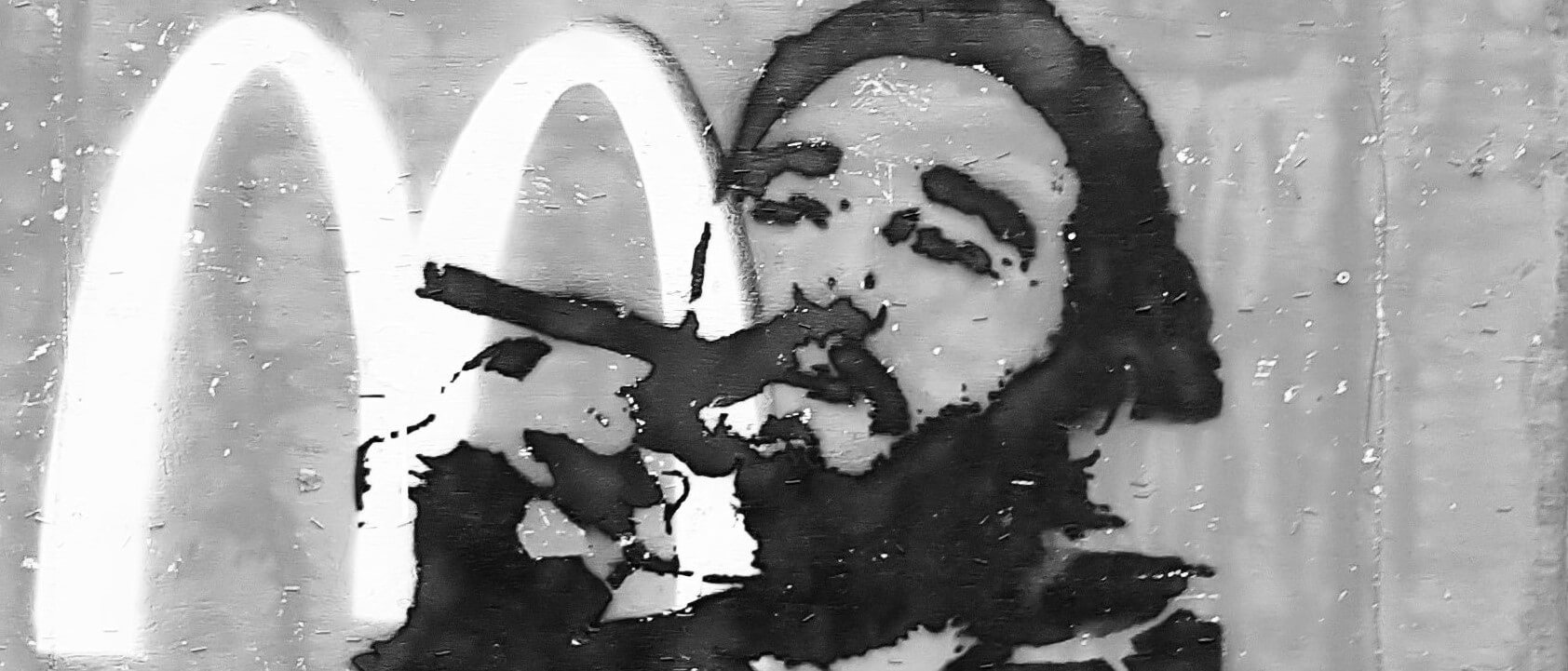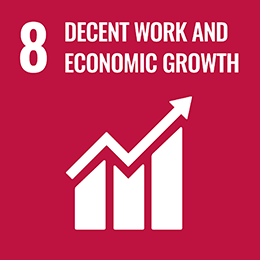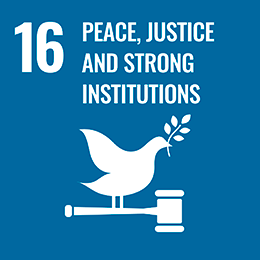Political Tyranny & the Richter Scale

Share this article
“The face of tyranny is always mild at first” — Jean-Baptiste Racine, French dramatist1
Imagine there was a Richter scale for political tyranny. How would it look like? How would it scale?
The Richter scale is named after Charles Richter (1900-1985), an American seismologist, and an active nudist in his spare time. The Richter scale measures the magnitude of earthquakes and has a logarithmic scale, which means the energy that is released increases by around 32 times for every whole point increase on the scale.
The Richter scale is also open ended, i.e., the worst measured earthquake of 9.5 in Chile in 1960 is not the worst possible. Serious damage starts around 6.
Let me try to apply political tyranny and unfreedom to something that resembles an open-ended log scale such as the Richter scale. What’s a 1.0 on this imaginary scale? We know that tyranny starts slow and then can progress quickly.
Inflation is a 1.0 on this scale. Inflation is a tax on stupidity. Inflation, when it is created by the government via monetary policy is a very mild, and a politically elegant way of taking wealth from someone with wealth. Some cynics say that the creation of inflation is a tax on stupid people. The smart people in Venezuela, for example, shifted their funds elsewhere long before inflation kicked in.
“Chavez is the best president Colombia has ever had”— Colombian homeowner2
Inflation is often used to reduce debt. Japan, with debt of around 260% of GDP, has been trying to reduce debt via inflation for decades. Debt won. So, what’s the next step on this tyranny scale?
Financial repression is a 2.0. Financial repression is a slightly more aggressive form of unfreedom than creating inflation. One example is forcing certain investors via regulation to hold assets they would not want to hold if they were not forced to by the authorities. Zero interest-rate policy and regulatory capital requirements for insurers and pension funds fall into this category.
Negative interest rate policy is a 3.0. Negative interest rates are an extra tax on those with the capital, or, using slightly stronger language, negative interest rates are a mild form of theft by the authorities. Contemporary Switzerland is an example. The current woke movement in the United States is also a mild form of tyranny.
“Political correctness is tyranny with manners”— Charlton Heston3
The recent reverse-enlightenment and limitation of free speech in the United States, the woke movement, is quite a serious affair. The limitation of free speech is somewhat an early indicator for stronger forms of tyranny to come.
“Whoever would overthrow the Liberty of a Nation, must begin by subduing the Freeness of Speech; a Thing terrible to publick Traytors”4— John Trenchard (1662-1723), English writer, and Thomas Gordon (1691-1750), Scottish writer
Excessive taxation is a 4.0. It is a form of non-freedom. Excessive taxation is here defined as the government taking more than 50% of income. Excessive taxation is quite a direct form of non-freedom, perhaps a coincident indicator for Friedrich Hayek's Road to Serfdom?
In the US in 1900, the tax freedom-day was in January and now it is in April. The tax freedom-day for most Swiss is too in April. In some European countries the tax freedom-day for individuals is in August. Belgians, who might or might not think of themselves as free, for example, spend more time working for the government than for themselves.
The Belgians, and some of their semi-socialised brethren in the European Union, are quite advanced on Hayek’s road to serfdom. Ponzi-like welfare can become quite expensive. However, the trade-off between taxation and concentration of wealth is no trivial matter for those with responsibility.
“The fiscal policy of a government may make or break a society, excessive taxation, or the entry of a government into production and distribution, can stifle incentive, enterprise, and competition, and kill the goose that lays the revenues. On the other hand, an excessive concentration of wealth may tear a society to pieces by promoting revolution” — Ibn Khaldun 5, Maghrebian Muslim historian and occasionally referred to as one of the fathers of the social sciences.
Expropriation of property is a 5.0 on this scale. Expropriation of property is a more aggressive form of government action. France under Mitterrand comes to mind; or the pre-Thatcher UK. The EU using Cyprus as an automated teller machine in 2013 falls into this category and China ‘annexing’ Hong Kong over the past 24 months is probably a 5.5 on this scale. The extreme right might also fall into this category, Hungary for example.
“Hello, dictator!”— Jean-Claude Juncker when greeting Viktor Orbán at the 2015 EU summit
Socialism is a 6.0. Serious damage is done through socialism. A deterioration of society, i.e., a destructive negative feedback loop starts here. Many African nations after independence would fall into this category. India after independence too is an example of socialism in combination with physical harm, i.e., a stronger form of tyranny than ‘just’ the expropriation of property.
First World intellectuals supported Indira Gandhi’s mass sterilisations of the 1970s at the time, in the name of the greater good, of course. Their offspring are now probably behind the woke movement, again deluded by their indoctrinated belief of holding a monopoly on virtue.
“What the political left, even in democratic countries, share is the notion that knowledgeable and virtuous people like themselves have both a right and a duty to use the power of government to impose their superior knowledge and virtue on others”— Thomas Sowell, American economist6.
Expropriation is a 7.0 on this ‘tyranny scale’. Expropriation of both property and labour, but not life, is a 7.0. China under Mao is one example. Most of the millions of deaths were a ‘side effect’ from economic unwisdom, mal-investment and failure, i.e., China under Mao was very different to, say, Cambodia under Khmer Rouge.
Many Westerners have a different view on Mao than have contemporary Chinese. To the sino-challenged Westerner, Mao was a butcher akin to Hitler or Stalin. The contemporary Chinese view is more refined than that, to say the least.
The Stalin model of expropriation of property in combination with mass deportation is a 8.0 on this scale. Seeking external confrontation for internal strife falls into this category.
“A state of war only serves as an excuse for domestic tyranny” — Aleksandr Solzhenitsyn, Russian novelist and historian7.
The Assads are practical experts in this model. Whether China’s current militarisation of the South China Sea and upcoming annexation of Taiwan fall into this category, I will leave aside for now. It’s a dead end.
“Reunification is a historical trend and it is the right path. Taiwan independence is an adverse current from history and is a dead end”— Xi Jinping in 20188.
Expropriation of property and mass extermination of human life is 9.5, the worst yet experienced on this imaginary Richter scale.
When you consider all of this, how do countries then rank on this scale? Based on this scale, Switzerland is around 3.0, and 50%+ tax-states like Belgium around 4.0. With the woke movement spreading like wildfire, the United States is a 2.5 transforming to become a 4.0, woke being an obvious form of unfreedom and tyranny, and wokeism now having moved beyond just the quixotic and child-like reasoning of intellectuals.
Venezuela was already at least a 5.0 under Chavez. Cuba is probably somewhere between 5.5 and 6.5, North Korea around 7. China is difficult to classify with this scale: a 2.0 in Shenzhen and a 6.5 in the north-west of the country. A 6.5 then.
So what is the practical investment relevance?
Inflation is a good thing, or the least bad. It is probably the most elegant way to reduce debt. It's a bit unfair as it's a disadvantage for the investment un-savvy and for the financially repressed investor and its stakeholders.
Creating inflation is what many central banks have been trying for a while now. But creating inflation keeps failing. One reason is that the impact from imported deflation from the Second World after the fall of the Berlin Wall is just too strong a force. Another reason is that the velocity of money was long negatively correlated with the printing of money, i.e., the newly printed money was hoarded or went elsewhere, i.e., didn't find its way into the real economy.
Bottom line: Governments with their backs to the wall have done a lot worse than inflating away their citizens assets. One need not be a nudist to see the naked truth.
Photo: © Niki Natarajan 2016
Artist: Rightfulrula
This article was first published on themarket.ch and reproduced with kind permission of Alexander Ineichen, founder of Ineichen Research and Management www.ineichen-rm.com.
1 Britannicus, 1669.
2 Trouble in Venezuela brings benefits to its neighbours, Financial Times (8.5.2012)
3 Appreciation: Charlton Heston, Time Magazine (6.4.2008)
4 Cato’s Letters, Volume 1, 1720. The Cato Letters is a series of 144 essays that condemn corruption and lack of morality within the British political system and warning against tyranny.
5 The Story of Civilization, Volume 6, The Reformation, Norwalk: Easton Press. Will Durant references The Muqaddimah, a book written by the Arab historian Ibn Khaldun in 1377.
6 1% shouldn't be dictating to the other 99%, Deseret News (17.5.2007)
7 The Gulag Archipelago
8 Foreign involvement in Taiwan independence is ‘intolerable’, China’s Xi says, CNBC (1.1.2019)
Article for information only. All content is created and published by CdR Capital SA. The views and opinions expressed in this article are those of the author(s). Information on this website is only directed at professional, institutional or qualified investors and is not suitable for retail investors. None of the material contained on this website is intended to constitute an offer to sell, or an invitation or solicitation of an offer to buy any product or service. Nothing in this website, or article, should be construed as investment, tax, legal or other advice.
Related articles
Covid: One Year On
More than a full year into the Covid era and much has changed. Forever? And if so, which should we be most concerned about? Damage to the constitution, education, employment, ex-Covid mortality, or the future high price of raw materials and civil liberty?

Government
Climate crises, plagues, an unwillingness to trade with foreigners and the corruption of democracy: a snapshot of the 21st century or a sign history is repeating itself?

Going Venezuela
Einstein is said to have defined insanity as doing the same thing over again and expecting different results. In Wriston’s Law of Capital and Sleeper pins, A Ineichen has defined ‘going Venezuela’ as doing the wrong thing repeatedly with great conviction.




